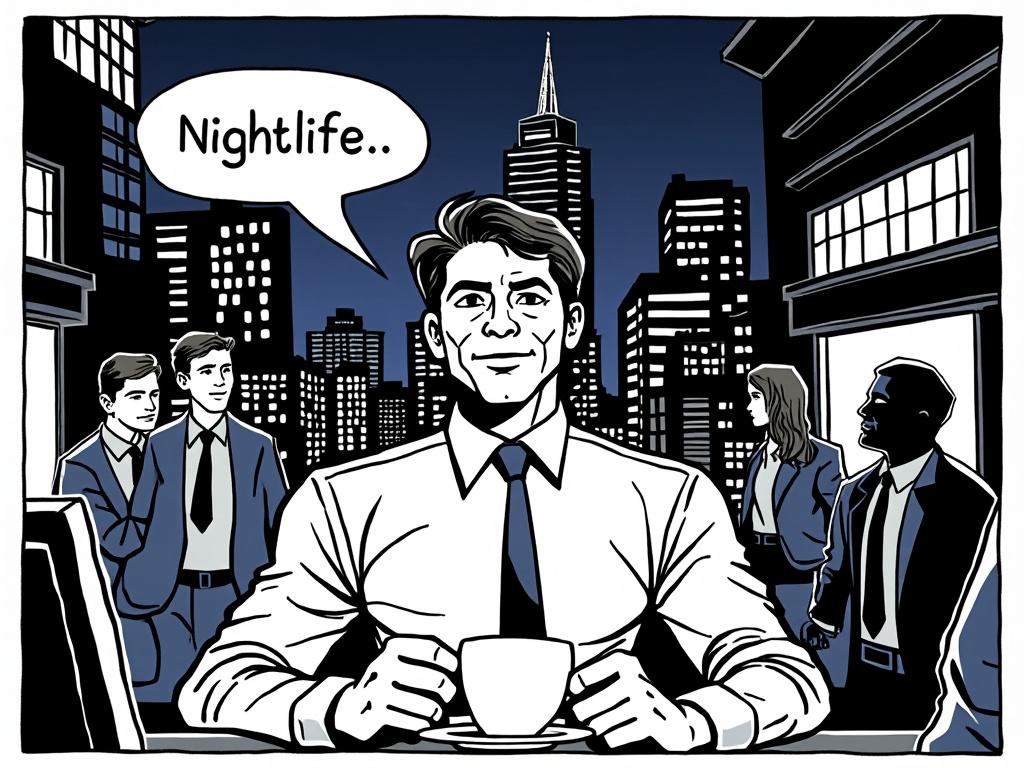
Nightlife in Greek Cities: Your Ultimate Guide to Mediterranean After-Dark Adventures
Reading time: 12 minutes
Ever wondered what makes Greek nightlife legendary across the Mediterranean? You’re about to discover why cities like Athens, Thessaloniki, and Mykonos have earned their reputation as Europe’s most vibrant after-dark destinations. From rooftop bars overlooking ancient ruins to beachside clubs that pulse until dawn, Greek cities offer an intoxicating blend of ancient culture and modern party scenes.
Table of Contents
- Understanding Greek Nightlife Culture
- Athens: Where Ancient Meets Contemporary
- Thessaloniki: The Cultural Capital’s Hidden Gems
- Island Nightlife: Beyond Mykonos and Santorini
- Practical Nightlife Navigation Guide
- Seasonal Variations and Peak Times
- Your Greek Nights Roadmap
- Frequently Asked Questions
Understanding Greek Nightlife Culture
Here’s the straight talk: Greek nightlife isn’t just about partying—it’s a cultural phenomenon deeply rooted in the Mediterranean philosophy of philoxenia (love of strangers) and communal celebration. Unlike Northern European cities where clubs close at 2 AM, Greek venues often don’t hit their stride until midnight, with peak hours extending well into the morning.
Key Cultural Insights:
- Greeks typically dine late (9-11 PM) before heading out
- Social drinking emphasizes conversation over heavy consumption
- Music ranges from traditional rebetiko to international electronic
- Dress codes lean toward smart casual with Mediterranean flair
Quick scenario: Imagine arriving at a popular Athens club at 10 PM only to find it nearly empty. What went wrong? Nothing—you’re simply experiencing Greek timing, where the real action starts after midnight when locals finish their leisurely dinners.
Athens: Where Ancient Meets Contemporary
Athens presents a fascinating nightlife paradox: sipping cocktails with views of the Parthenon while electronic beats pulse through speakers. The city’s 3.7 million residents have crafted distinct entertainment districts, each offering unique atmospheric experiences.
Psyrri District: The Creative Hub
Psyrri has transformed from a working-class neighborhood into Athens’ creative epicenter. Street art covers building walls while converted warehouses house intimate bars and live music venues. Hoxton, a cocktail bar housed in a neoclassical building, exemplifies this transformation—serving craft cocktails alongside rotating art exhibitions.
According to Maria Konstantinou, Athens nightlife consultant, “Psyrri represents modern Greek creativity. Young entrepreneurs have created spaces that honor tradition while embracing innovation.”
Gazi: The Party Powerhouse
Built around a former gasworks plant, Gazi thrives as Athens’ primary clubbing destination. Industrial Gas and Venue regularly host international DJs, while smaller venues like Gazarte offer multi-level experiences combining dining, drinking, and dancing.
Gazi Nightlife Statistics:
2,500 people
1-4 AM
95% capacity
€15-25
Thessaloniki: The Cultural Capital’s Hidden Gems
Greece’s second-largest city offers a more intimate nightlife experience, heavily influenced by its substantial student population and Byzantine heritage. With over 150,000 university students, Thessaloniki maintains year-round energy that many tourist-dependent destinations lack.
Ladadika District: Historic Charm
This former commercial quarter now houses sophisticated wine bars and restaurants within restored Ottoman-era buildings. Thermaikos exemplifies the area’s character—a multi-story venue offering different experiences from basement jazz performances to rooftop dining.
Valaoritou Street: Student Haven
Running through the city center, Valaoritou Street buzzes with affordable bars catering to university crowds. Live music venues like Eightball showcase local bands alongside established acts, creating an authentic musical discovery experience.
Pro Tip: Thessaloniki’s compact size allows easy venue-hopping on foot. Start with dinner in Ladadika, grab drinks on Valaoritou, then finish at waterfront clubs near the port.
Island Nightlife: Beyond Mykonos and Santorini
While Mykonos and Santorini dominate headlines, Greece’s island nightlife extends far beyond these famous destinations. Each island develops its unique party personality based on geography, demographics, and cultural influences.
| Island | Nightlife Style | Peak Season | Crowd Type | Average Drink Price |
|---|---|---|---|---|
| Mykonos | International clubbing | July-August | Luxury tourists | €12-18 |
| Ios | Beach parties | June-September | Young backpackers | €6-10 |
| Paros | Laid-back bars | May-October | Families & couples | €8-12 |
| Rhodes | Historic venues | April-November | Mixed ages | €7-11 |
| Crete | Traditional music | Year-round | Cultural tourists | €5-9 |
The Ios Experience: Europe’s Ultimate Beach Party
Ios has earned recognition as Europe’s premier beach party destination, attracting over 100,000 young travelers annually. Far Out Beach Club epitomizes the island’s appeal—oceanside dancing from sunset to sunrise with international DJs spinning everything from house to reggae.
Well, here’s the reality: Ios transforms completely between day and night. Peaceful beaches become pulsing dance floors, while quiet villages turn into bustling party zones. The island’s unique geography allows multiple beach clubs to operate simultaneously without disturbing residential areas.
Practical Nightlife Navigation Guide
Successfully navigating Greek nightlife requires understanding local customs, timing, and practical logistics. These insights will help transform potential confusion into memorable experiences.
Essential Navigation Strategies:
- Timing Mastery: Arrive at bars around 10-11 PM, clubs after midnight
- Dress Code Awareness: Smart casual works everywhere; avoid shorts in upscale venues
- Payment Methods: Cash remains king, though cards are increasingly accepted
- Transportation Planning: Book taxis in advance during peak hours
Common Challenges and Solutions
Challenge 1: Language Barriers
Solution: Download translation apps and learn basic Greek greetings. Most staff in tourist areas speak English, but effort is appreciated.
Challenge 2: Late Night Transportation
Solution: Athens metro runs until 2 AM on weekends, but island transportation often stops earlier. Plan accordingly or arrange accommodation within walking distance.
Challenge 3: Overwhelming Venue Choices
Solution: Research beforehand but remain flexible. Ask locals for recommendations—Greeks love sharing their favorite spots.
For visitors considering extended stays or passport of greece opportunities, understanding nightlife culture provides valuable insight into Greek social dynamics and community integration.
Seasonal Variations and Peak Times
Greek nightlife follows distinct seasonal patterns influenced by tourism, weather, and local traditions. Understanding these cycles helps optimize your night-out experiences.
Summer (June-August): Peak Intensity
Islands explode with activity while mainland cities experience tourist influx. Expect crowded venues, higher prices, and extended operating hours. Beach clubs dominate, with parties continuing until sunrise.
Spring/Fall (April-May, September-October): Sweet Spot
Ideal weather combines with manageable crowds. Many venues offer outdoor seating, and locals return from summer travels. Prices moderate while quality remains high.
Winter (November-March): Local Authenticity
Tourist numbers drop dramatically, revealing authentic Greek nightlife. Island venues may close, but mainland cities maintain vibrant scenes. Indoor venues showcase traditional music and cultural events.
Your Greek Nights Roadmap
Ready to transform your understanding into unforgettable Greek nightlife experiences? Here’s your strategic implementation roadmap:
Immediate Action Steps:
- Research and Plan: Identify your preferred cities and districts based on nightlife style preferences. Download venue apps and check social media for current events
- Cultural Preparation: Learn basic Greek phrases and understand local customs around drinking, tipping, and social interaction
- Logistics Setup: Arrange accommodation within walking distance of nightlife districts or ensure reliable late-night transportation options
- Budget Planning: Factor in higher island prices and seasonal variations. Allocate funds for cover charges, drinks, and transportation
- Flexibility Mindset: Embrace Greek timing and spontaneity. The best experiences often come from unexpected discoveries and local recommendations
The future of Greek nightlife continues evolving as younger generations blend traditional hospitality with international influences. Sustainable tourism initiatives are reshaping island destinations, while urban venues increasingly focus on local culture and community connection.
Your Greek nightlife adventure awaits—will you dive into the ancient streets of Athens, discover Thessaloniki’s hidden gems, or dance until dawn on an Aegean island? The choice is yours, but the memories will be uniquely Greek.
Frequently Asked Questions
What time does nightlife typically start in Greek cities?
Greek nightlife follows Mediterranean timing patterns. Bars begin filling around 10-11 PM, while clubs don’t reach peak energy until after midnight. Many venues stay open until 4-6 AM, especially during summer months. Plan dinner around 9 PM, then head out for drinks afterward to align with local customs.
How expensive is nightlife in Greece compared to other European destinations?
Costs vary dramatically by location and season. Athens and Thessaloniki offer reasonable prices (€6-12 for cocktails), while popular islands like Mykonos and Santorini can cost €15-25 per drink. Budget-friendly islands like Ios or Paros maintain affordable prices (€5-10). Cover charges range from free to €25 for premium venues during peak season.
Is it safe to explore Greek nightlife as a solo traveler or tourist?
Greek cities are generally very safe for nightlife exploration, with low crime rates and strong cultural emphasis on hospitality. Exercise standard precautions: stay in well-lit areas, don’t leave drinks unattended, and inform someone of your plans. Greek people are typically helpful and welcoming to tourists, often going out of their way to provide assistance or recommendations.

Article reviewed by Ethan Blackwell, Build-to-Rent (BTR) Pioneer | Institutional-Grade Residential Portfolios, on June 6, 2025




